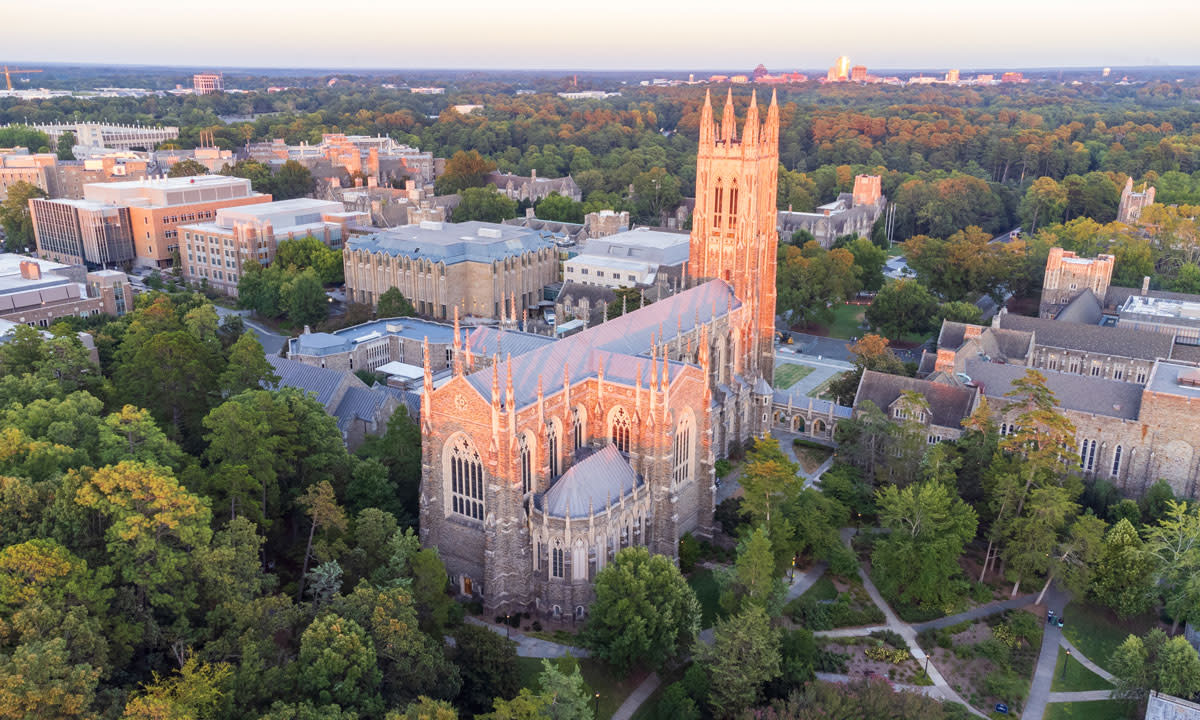Duke University Receives Grants to Expand Racial and Ethnic Wealth Gap Study

This article was originally published in NC Newsline.
The Samuel DuBois Cook Center on Social Equity at Duke University has received $3.4 million in grants from four institutions to support research on the post-pandemic racial wealth gap in five U.S. cities, including Durham and Charlotte.
The other three cities are Atlanta, Houston and Washington, D.C. Throughout 2024 and 2025, researchers hope to better understand how the pandemic affected small business development in these areas, as well as analyze racial and ethnic wealth inequality across the United States.
The project will focus on the connection between the wealth gap and rates of entrepreneurship in various communities and the racially disparate effects of the COVID-19 pandemic.
Get stories like these delivered straight to your inbox. Sign up for The 74 Newsletter

“In addition to comprehending these disparities, the Cook Center aspires to offer policy solutions that will meaningfully alleviate inequality,” said Gwendolyn L. Wright, director of strategic initiatives at the Cook Center. “The continuation and expansion of the NASCC [National Asset Scorecard for Communities of Color] project is a major step forward, and these partnerships reflect the widespread desire for such solutions.”
The Cook Center received major financial support from the MetLife Foundation, the JPB Foundation of New York, Walmart through the Walmart.org Center for Racial Equality and the City of Durham.
“We are thrilled to be able to collaborate with these organization and have their support in building upon the first NASCC Phase and continuing to study the racial wealth gap across America,” said William A, “Sandy” Darity Jr., the founding director of strategic initiatives at the Cook Center.” “The continuation and expansion of the NASCC project is a major step forward and these partnerships reflect the widespread desire for such solutions.”
Victoria W. Samayoa, American Rescue Plan Act Grants Manager for the City of the Durham, said the survey is critical to equity and justice work and creates opportunities to improve quality of life for residents.
“It is incredibly fortunate and fortuitous that the American Rescue Plan Act (ARPA) funding allows for an unparalleled chance to deepen acceleration of tangible projects that target gaps in support and resources to be sure the city forges ahead tenaciously in its desire to create excellence with quality to support the foundations that create that,” Samayoa said.

The results formed the backbone of the Cook Center’s “Color of Wealth” reports, which offered a look at the depths of racial wealth inequality in Baltimore, Boston, Los Angeles, Miami, Tulsa, and Washington, D.C. Among other findings, the “Color of Wealth” helped highlight what study authors called an astonishing disparity in Boston: that while the median household wealth for a white family in Boston was nearly $250,000, the median household wealth for a (non-immigrant) Black family in the city was just $8.
“The data from the original NASCC project were widely used by community foundations, think tanks, local governments, and the media to frame key issues, elevate promising approaches, and build support for strategic investments,” said Mark Harris, senior program officer of Community and Worker Power at the JPB Foundation. For more information about the Cook Center’s “Color of Wealth” series, view the Center’s website here.
NC Newsline is part of States Newsroom, a nonprofit news network supported by grants and a coalition of donors as a 501c(3) public charity. NC Newsline maintains editorial independence. Contact Editor Rob Schofield for questions: info@ncnewsline.com. Follow NC Newsline on Facebook and Twitter.
